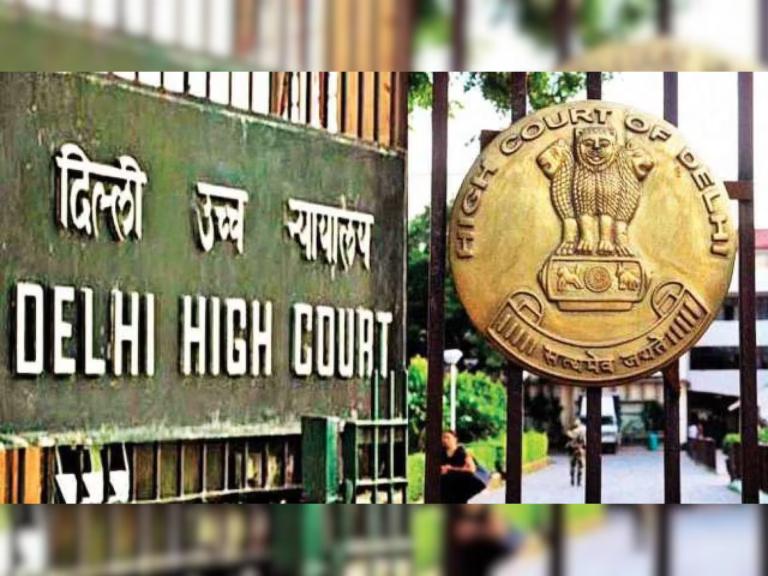In a detailed judgment delivered on September 22, 2025, the Delhi High Court dismissed a petition filed by CISF Sub-Inspector Khaja Hussain, who had challenged disciplinary action taken against him for sexually harassing a woman colleague. The two-judge bench of Justice Subramonium Prasad and Justice Vimal Kumar Yadav upheld the internal findings, remarking that Hussain's behaviour "was unbecoming of an officer in a uniformed force" and that the punishment imposed was, in fact, lenient.
Background
The case arose from a complaint lodged by Lady Sub-Inspector Mahashweta Patel while both officers were posted at the CISF unit in Vindhyanagar. Patel accused Hussain of sending her obscene WhatsApp messages, making inappropriate phone calls, and even attempting to enter her residence in July 2015 with "malafide intentions."
During the departmental inquiry, Patel testified that the accused had often used endearments like "I love you" and "darling" in conversations and that he had once tried to force himself upon her. Witnesses, including Patel’s parents and CISF colleagues, supported her statements.
The internal Enquiry Committee, after examining call recordings, messages, and testimonies, found Hussain guilty of sexual misconduct and imposed a one-stage reduction in pay for two years. The Director General of CISF later upheld the order, rejecting Hussain’s revision petition.
Court's Observations
Appearing before the High Court, the petitioner’s counsel argued that the complaint was fabricated and that the interactions were "friendly and consensual." It was also claimed that the complainant had blackmailed him for marriage and later turned vindictive.
The government counsel, Ms. Monika Arora, countered that the evidence - including the WhatsApp exchanges - clearly fell under the definition of sexual harassment under the POSH Act, 2013, which prohibits inappropriate conduct in the workplace.
The Bench observed,
"There is no violation of the principles of natural justice. The Enquiry Committee examined all material evidence and the findings are supported by reason." The Court emphasized that it was not an appellate forum to reappreciate evidence in disciplinary proceedings and that the punishment was proportionate to the misconduct.
Citing precedents from the Supreme Court - including State of A.P. v. Sree Rama Rao and Union of India v. P. Gunasekaran - the Court reiterated that its role under Article 226 was limited to checking procedural fairness, not reassessing facts.
"The adequacy or reliability of evidence is not for the High Court to test," the bench noted.
The judges also took note of Hussain's admission that he had exchanged indecent messages, though he tried to justify them as part of friendship.
"Being a married officer, he had a moral duty not to indulge in such conduct. His actions are clearly inconsistent with the discipline expected in uniformed service," the Court observed sharply.
At one point, Justice Prasad remarked,
"This Court is of the opinion that the petitioner has been let off lightly. The punishment is in fact mild given the nature of misconduct."
Decision
Finding no procedural irregularity or violation of natural justice, the Delhi High Court dismissed Hussain's writ petition. It upheld both the 2016 disciplinary order and the 2017 revisional order of the CISF, concluding that the internal inquiry had been fair and legally sound.
"The conduct of the petitioner was unbecoming of an officer in a disciplined force. The punishment imposed is commensurate with the misconduct," the judgment concluded.
With that, the bench formally dismissed the case, bringing to an end a long disciplinary saga that had stretched over nearly a decade.
Case Title: Khaja Hussain v. Director General, Central Industrial Security Force & Ors.
Case Number: W.P.(C) 1712/2019
Date of Judgment: 22nd September 2025
Counsel for Petitioner: Mr. Ajit Kakkar and Mr. Tejas Bhonge, Advocates
Counsel for Respondents:
Ms. Monika Arora, CGSC
Mr. Subhrdeep Saha, Ms. Anamika Thakur, Mr. Prabhat Kumar, Mr. Abhinav Verma, Advocates
Mr. Rohtas (CISF representative)















